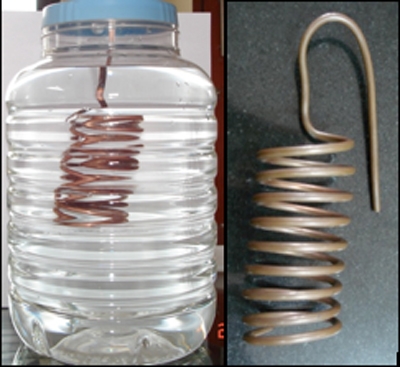A McGill University team has been awarded a $100,000 grant to field-test a new low cost water purifier in poor areas of India and Kenya.

The purifier is made from high quality electrical copper wire, and has been proven to kill waterborne pathogens which can cause infectious diarrhea, an affliction which leads to over two million deaths per year. Simply storing water overnight in a vessel equipped with the device should purify it. It is expected to cost as little as $10 for use in a 10-litre container, and it will last a lifetime. It also requires no electricity.
“Our priority is to demonstrate copper device’s safety, effectiveness, and acceptability to the communities that need such a solution,” Dr. Caroline Kisia told the McGill Reporter. “Our success should influence governments to promote it and support our next goal, which is to apply for GCC’s Phase 2 Transition-to-Scale Grant of up to $1 million.”
Field testing will consist of compiling data on water quality, existing storing and purifying methods, and the incidence of diarrhea in each region. Some households will be provided with purifying devices, while others will continue with their current purification methods, and water qualities will then be compared. The team will also put together a model for scaling the project’s scope, including community and governmental involvement.









